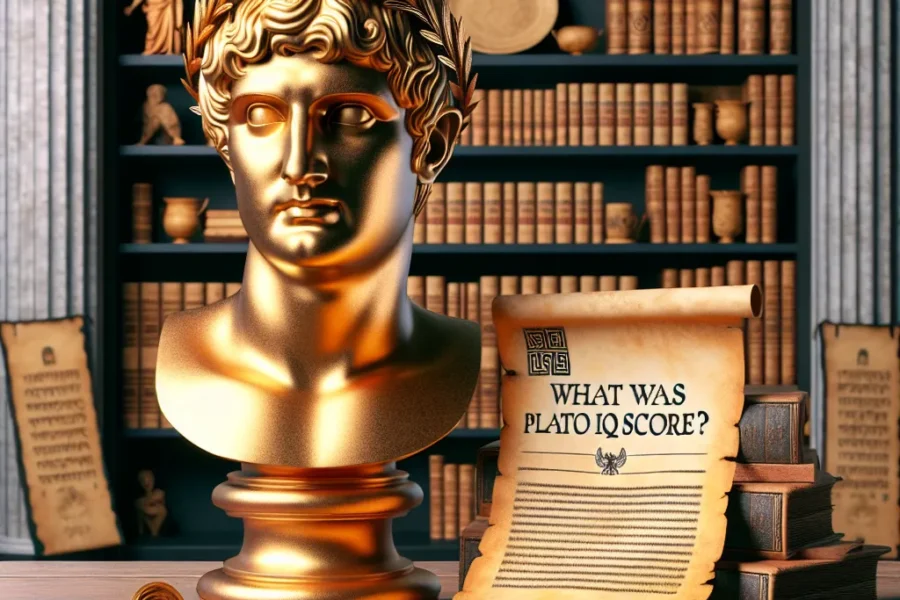Determining the IQ score of historical figures has always fascinated scholars, students, and enthusiasts alike. The idea of quantifying the intelligence of minds who have shaped the fabric of human thought is both alluring and perplexing. One such intellectual giant whose IQ score people often speculate about is the Greek philosopher Socrates. Renowned for his contributions to ethics, epistemology, and the development of Western philosophy, Socrates’ intelligence was clearly formidable. But is it possible to quantify his intelligence with a modern measure like the IQ test?
If you are looking for legitimate IQ Tests which pass the entry bar for Mensa, see our [IQ Tests](https://cognitivemetrics.co).
To understand why Socrates has become a subject of such intellectual curiosity, it’s crucial to first delve into his life and contributions. Born circa 470/469 BC in Athens, Greece, Socrates was a seminal figure in the history of Western philosophy. Unlike many of his contemporaries, Socrates left no written records of his thoughts or teachings. Much of what we know about him comes from the accounts of his students, most notably Plato and Xenophon, and contemporary playwright Aristophanes. Socrates is known for his dialectical method of inquiry, popularly referred to as the Socratic Method, which involved asking a series of probing questions to stimulate critical thinking and illuminate ideas.
Socrates’ approach to knowledge was both unique and revolutionary. He famously proclaimed that he knew nothing, a statement that underpinned his method of questioning everything and seeking truth through dialogue. This humility and relentless pursuit of knowledge indicate a keen and sharp intellect. However, translating this into an IQ score is fraught with challenges.
IQ, or Intelligence Quotient, is a standardized metric used to quantify human intelligence based on various cognitive abilities such as logical reasoning, problem-solving, and verbal comprehension. Modern IQ tests are designed to compare an individual’s performance to a normative sample, picked from the general population. These tests typically involve a series of tasks that draw on different facets of intelligence and provide a score that reflects relative cognitive ability.
Attempting to apply modern IQ tests retrospectively to historical figures like Socrates is inherently problematic. IQ tests are structured to be administered under controlled conditions, which obviously cannot be applied to someone who lived over two millennia ago. Moreover, the cultural and educational context of Socrates’ time vastly differs from today’s environment. Cognitive abilities that are highly prized and therefore measured in contemporary IQ tests may not directly correlate with the type of intellectual prowess Socrates possessed.
Yet, this hasn’t deterred some enterprising scholars and enthusiasts from making educated guesses. Various estimates of Socrates’ IQ have been proposed, often ranging between 160 and 200, placing him in the realm of a genius or near-genius category. These estimates, however, are speculative at best and should be taken with caution. They are often derived from an analysis of his philosophical works and accounts of his reasoning capabilities rather than empirical testing.
Understanding Socrates’ intelligence also involves recognizing the limitations of IQ as a sole indicator of genius. IQ tests measure certain aspects of intelligence but do not necessarily encompass all forms of cognitive prowess. Socratic intelligence was multidimensional. While he demonstrated extraordinary analytical and logical skills, his insights into human behavior, ethics, and the nature of knowledge were equally profound. IQ tests might capture his logical skills but might not adequately reflect his full intellectual contributions.
For example, consider the Socratic Method itself. While modern educational paradigms might struggle to quantify this teaching approach, its impact on critical thinking and dialogue is immeasurable. Socratic questioning promotes deep understanding and reflection, qualities that transcend mere numerical scores. Furthermore, Socrates’ influence on his students and subsequent generations of philosophers illustrates an intellectual legacy that defies simple measurement. His pupil, Plato, and Plato’s student, Aristotle, built upon Socratic ideas to lay down the foundations of Western philosophy.
Additionally, the historical and social context within which Socrates operated played a crucial role in shaping his intellectual endeavors. Athens during Socrates’ lifetime was a bustling hub of activity, teeming with varied ideas and political debates. This environment would have provided ample stimuli for Socratic inquiry and dialogue. His method of engaging with a broad spectrum of contemporary thinkers and citizens would have honed his intellectual faculties in a way that standardized testing might not fully capture.
Apart from philosophical acumen, it is worth considering Socrates’ ethical and moral insights. His ideas on virtue, justice, and the good life have had an enduring influence on both philosophical thought and broader cultural understandings of integrity and morality. These contributions reflect a depth of wisdom and understanding that IQ scores might not be equipped to measure.
Moreover, assessing Socratic intelligence involves recognizing his role as a public intellectual and his impact on civic life. Unlike many intellectuals who isolate their thoughts within academic confines, Socrates engaged directly with the citizens of Athens. His discussions in the marketplace, captured in the dialogues of Plato, illustrate an ability to communicate complex ideas in accessible ways. This aspect of his intelligence—his ability to teach, persuade, and challenge common notions—adds another dimension that resists simple quantification.
In the end, while the notion of pinning down an IQ score for Socrates might tempt some, it ultimately simplifies and distorts the fullness of his intellectual achievements. IQ tests offer a useful, albeit limited, view of cognitive abilities, emphasizing aspects like problem-solving, logical reasoning, and language comprehension. These are crucial components of intelligence but hardly encompass its entirety, especially in the case of someone like Socrates whose legacy pervades different facets of intellectual inquiry and human experience.
Thus, when pondering the question, “What was Socrates’ IQ score?” it’s crucial to recognize the limitations inherent in such an inquiry. Socrates’ brilliance lies not in how he might score on a modern IQ test, but in his enduring influence on philosophy, ethics, and the method of critical inquiry itself. His legacy challenges us to rethink the very nature of knowledge and intelligence, reminding us that true genius often transcends our efforts to measure it.
So while we may never have a definitive answer to Socrates’ IQ, understanding and appreciating his contributions offer a far richer perspective on human intellect and its possibilities. Socrates’ life and work encourage us to engage with ideas critically, question commonly held beliefs, and seek deeper truths—lessons that remain as relevant today as they were over two millennia ago.



Leave a Comment